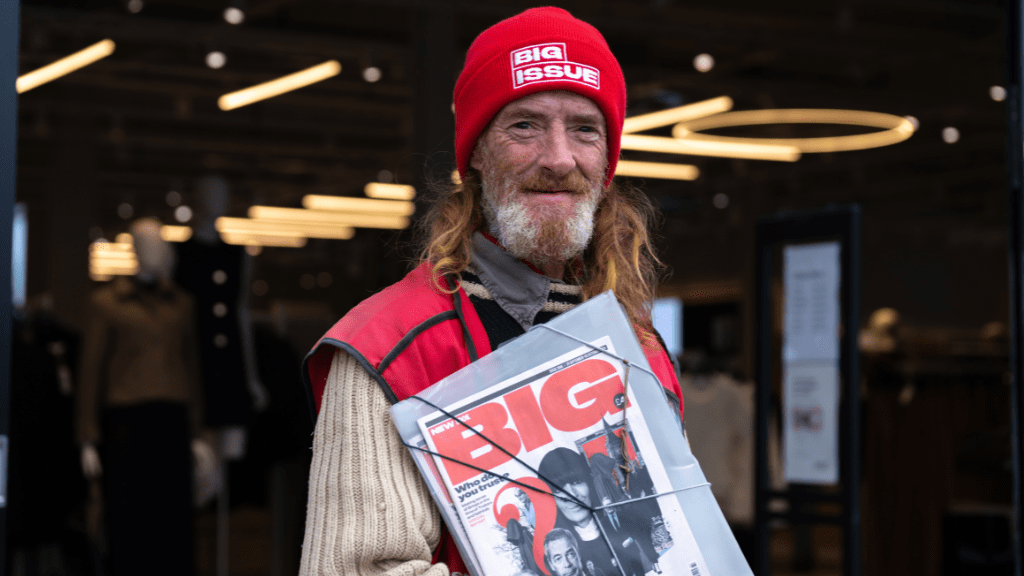Of course that won’t impact him as he’ll be living on Mars. But for the rest of us more earthly bound mortals, it is a terrifying prospect.
This year a response came. Reassuring that it took so long – maybe it’s a way of proving it wasn’t AI generated.
At London Tech Week in early June there was a lot of AI chat. The specific response to Elon Musk came from Matt Clifford, Number 10’s AI guru.
“This isn’t actually a question about jobs, but about control,” he said. He believes AI will help with jobs, not obliterate them all. Jean Innes, chief executive of The Alan Turing Institute, said she thought Musk’s comments were designed to provoke, to make industry respond, not ignore AI.
This is all very reassuring. But while people at the cutting end of tech development were swapping nice words about the usefulness of AI, the Office for National Statistics revealed that we’re in a tough period for jobs. UK companies are holding back on hiring.
Read more:
Advertising helps fund Big Issue’s mission to end poverty
Available jobs fell by 63,000 between March and May, but the unemployment rate went up. Whether it’s because of the employers’ national insurance contributions increase introduced by the chancellor in April leading to firms having less ready cash to spend on new hires, or to fill vacancies, or a more general lack of money around, it’s not a fantastic time to be job searching.
There is evidence of this in some key industries. Back in May, at the Royal College of Nursing (RCN) Congress in Liverpool, there were concerns about a lack of jobs for newly qualified nurses. There were stories of newly qualified staff taking jobs in coffee shops due to a lack of opportunities.
The Royal College of Midwives recently warned that due to funding cuts and recruitment freezes, more than eight out of 10 midwives qualifying this year feared they wouldn’t find a job. Again, given the need for this skilled staff, there is a disconnect somewhere.
It’s not just England and Wales with issues. A BMA Scotland survey last week found that seven in 10 resident doctors (what used to be called junior doctors) were considering leaving due to a lack of roles.
Outwith health, a good number of recent graduates are finding it tough to move into work, and not just in their field of qualification. There is another year’s worth of graduates about to appear on the jobs market.
When the government makes tough noises about addressing the volume of young people not in work, they don’t always address the reasons.
Advertising helps fund Big Issue’s mission to end poverty
In her spending review, Rachel Reeves pledged £1.2 billion on “training and upskilling our young people”. She said it would “support over a million young people into training and apprenticeships so that their potential, their drive and their ambition is frustrated no longer”.
Nobody would argue against useful training and upskilling. That part of the funnel is functioning. But what about the bit at the end, when they come out searching for work?
That bit mustn’t be forgotten. Otherwise Elon Musk will be closer to the truth than we’d like.
Promises are easy to break. Sign Big Issue’s petition for a Poverty Zero law and help us make tackling poverty a legal requirement, not just a policy priority.
Do you have a story to tell or opinions to share about this? Get in touch and tell us more. Big Issue exists to give homeless and marginalised people the opportunity to earn an income. To support our work buy a copy of the magazine or get the app from the App Store or Google Play.






